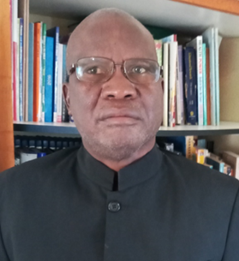Mazrui (1986) in his documentary, ‘The Africans: A Triple Heritage’, ironically alludes to the African mind as being capable of forgetting easily despite what has happened in the past.
There are elements of truth in such discourse as Africans forget and forgive easily despite what they went through under slavery and colonialism, yet after Independence, the leaders of newly independent countries extended hands of friendship and invited the oppressors to co-exist with the oppressed.
This is not tenable in the Western world, where racism is rife despite Africans having contributed to their economies. However, despite the undeniable reality that the Namibian struggle for freedom was one of the most protracted and bitterest on the African continent, many Namibians tend to forget this chapter in their lives.
The war of liberation was intended to bring about equality, freedom and justice for all, but these noble hallmarks are being compromised daily by many Namibians. It is not easy to forget that in 1968, the crackdown on freedom fighters and their sympathisers was at its peak in the Zambezi region, especially along the Sibbinda-Makanga-Masida-Kongola-Kalubi-Sesheke-Singalamwe Corridor.
Many more abuses and atrocities were committed in many parts of the country, which still bears scars emanating from torture. The suspected freedom fighters had to flee using the Imusho and Sinjembela route, while others in their mid-seventies used different routes to arrive at the desired frontlines as per their areas of residence.
The people from the north used the Oshikango route, the eastern route users ended up in Francistown in Botswana, while the Zambezi region had many routes because of its vastness. Teachers and students from Simataa Secondary and Kasheshe Primary schools made a shortcut through the bushy areas into Zambia, while others used canoes to cross the crocodile and hippopotamus-infested Zambezi River into Zambia.
These were daring journeys which needed bravery and courage, as most trips were undertaken during the night. In some cases, the people had to circumvent the South African Security Forces and cross over. Many people died during these expeditions through sickness or being mauled by wild animals.
Another significant group was the one which was arrested and taken to either Robben Island or BJ Vorster Square in Pretoria. Those who did not go either into exile or to prison, kept the liberation fires burning. The South African security forces found it hard to maintain law and order as the masses were trying to make the country ungovernable.
In this way, people contributed to the liberation struggle in one way or another. However, they are those who did not pull together with others to achieve independence as desired.
The desire to leave the country and undergo military training to liberate Namibia was in most intents an individual choice.
Ndeikwila (2014: 26) quotes the founding president on his decision to return to Namibia on 20 March 1966, saying “none of the PLAN trainees had seen him at their homesteads, asking them to join the liberation struggle abroad.” Whereas people were not forced to join the liberation struggle, some honourable members of parliament sound to debate as if, they are the only ones who went to Robben Island.
The contributions of everyone to the freedom of this country should be appreciated, but most of all, ‘the ones war did not allow to come back home.’ Those who went to Robben Island and BJ Vorster Square Prisons should be thankful that they came back with their lives, and should always honour and remember the ones who did not make it to Independence.
The graves of Induna Masida, Simbwaye, Hainyeko and many others remain unmarked and unknown, yet some lawmakers have the courage of boasting about their contribution to the struggle when others lost their lives for it. It is common sense to think about the role played by the heroes and heroines who fell into battle.
One hardly hears any debate about the difficult and important role played by the fallen heroes and heroines on the battlefield. No party in the house vehemently complains about corruption that is rife at all levels in this country, or the issue of ethnic orientation in all workplaces, evils the fallen heroes and heroines died fighting for.
The willingness and commitment shown to liberate the country have evaporated over the years of independence. One would have thought that when members of parliament keep on boasting about their participation in serving jail sentences, should equally advocate the wishes of the fallen heroes and heroines.
While the honourable members are boasting in parliament, it is a sign that they are out of touch with reality about the youth who are not employed and the siblings of the fallen heroes and heroines who wallow in poverty all over the country.
The boasting by certain members of parliament by having been detained at Robben Island and therefore free to utterances tilting around hatred, unconstitutionality and war-mongering against the opposition does not augur very well as per Article 21 (1) (b) on Fundamental Freedoms which is very clear and emphasizes the freedom of speech and expression, which shall include freedom of the press and other media; freedom of thought, conscience and belief, which shall include academic freedom in institutions of higher learning.
It was the love of equality, freedom and justice that catapulted the fallen heroes and heroines to lay down their lives.
Professor Makala Lilemba


